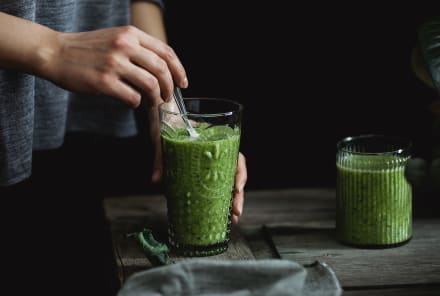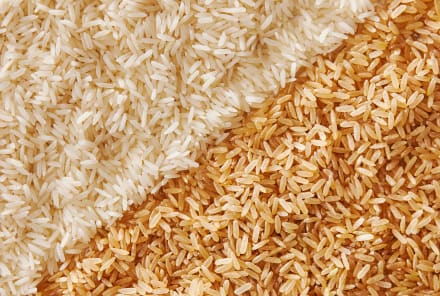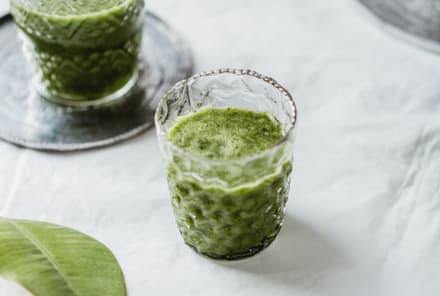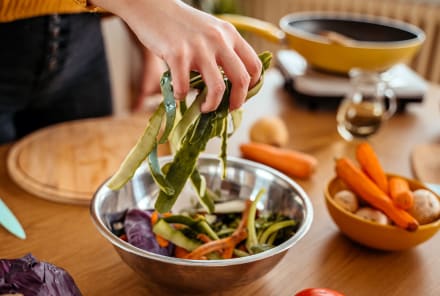Advertisement
Dirty Dozen & Clean 15: The Foods With The Most & Least Pesticides In 2024

Every year, the Environmental Working Group (EWG) analyzes the most recent USDA data to compile its infamous Clean 15 and Dirty Dozen lists.
These list the types of fruits and vegetables that tend to be grown with the most and least pesticides, based on the latest available numbers.
Before we peel back the results of the 2024 list, a produce PSA: Don't take them as a sign that you should be avoiding any fruits or vegetables altogether—even the ones considered "dirty."
Given research like this study out of the Illinois Institute of Technology, Chicago, which found that after seeing pesticide messaging, low-income shoppers were less likely to purchase any fruits or vegetables, it's important to point out that eating a non-organic strawberry is still by and large a healthier choice than eating, say, a strawberry-flavored gummy bear. Filling your plate with a variety of fresh fruits and veggies will always be a cornerstone of good nutrition.
So, you can think of these lists more as resources to help guide your produce purchasing habits. If you only have a certain amount of money to spend at the grocery store, the Dirty Dozen and Clean 15 can steer you toward the produce you should prioritize buying organic from a health perspective (though there are environmental and worker's rights reasons to buy organic when you can too).
With that out of the way, here's the updated list:
The 2024 Dirty Dozen:
To come up with this year's list, the EWG parsed through USDA data on 47,510 samples of 46 of the most popular fruits and veggies (you can see how all of them stacked up here). The USDA washed and peeled them as one would do at home before testing them for pesticides.
After washing, 75% of non-organic fresh produce sold in the U.S. contained residues of pesticides, the report found.
To rank each type of produce from "clean" to "dirty," the EWG assigns it a score based on the percent of samples tested with detectable pesticides; percent of samples with two or more detectable pesticides; average number of pesticides found on a single sample; average amount of pesticides found; maximum number of pesticides found on a single sample; and total number of pesticides found on the crop.
"All categories are weighted equally since they convey different but equally relevant information about pesticide levels on produce," the report's methodology section reads.
This means that the list indicates which crops tend to be treated with the highest volume and variety of pesticides but doesn't go so far as to say which ones are the riskiest from a human health perspective.
Here is the most recent list:
- Strawberries
- Spinach
- Kale, collard, and mustard greens
- Grapes
- Peaches
- Pears
- Nectarines
- Apples
- Bell & Hot Peppers
- Cherries
- Blueberries
- Green Beans
More than 50 pesticides were detected on samples from each item on the Dirty Dozen, except cherries. And all of the produce on the Dirty Dozen had at least one sample with at least 13 pesticides—and some had as many as 23, this year's report reads.
The 2024 Clean 15:
As is the case every year, you'll notice that most of 2024's "cleanest" produce has a tough outer peel, husk, or shell that is removed prior to eating. Makes sense!
- Avocados
- Sweet corn
- Pineapple
- Onions
- Papaya
- Sweet peas (frozen)
- Asparagus
- Honeydew melon
- Kiwi
- Cabbage
- Watermelon
- Mushrooms
- Mangoes
- Sweet potatoes
- Carrots
Almost 65% of Clean Fifteen fruit and vegetable samples had no detectable pesticide residues.
The takeaway
Every year, the EWG's Clean 15 and Dirty Dozen provide an overview of the fruits and vegetables that contain the most and least pesticides. These lists can help you decide where it's worth it to splurge on organic produce versus save your cash for that fancy olive oil you've been eyeing. But remember: they're not a reason to avoid fruits and veggies altogether.
Watch Next
Enjoy some of our favorite clips from classes
Enjoy some of our favorite clips from classes
What Is Meditation?
Mindfulness/Spirituality | Light Watkins
Box Breathing
Mindfulness/Spirituality | Gwen Dittmar
What Breathwork Can Address
Mindfulness/Spirituality | Gwen Dittmar
The 8 Limbs of Yoga - What is Asana?
Yoga | Caley Alyssa
Two Standing Postures to Open Up Tight Hips
Yoga | Caley Alyssa
How Plants Can Optimize Athletic Performance
Nutrition | Rich Roll
What to Eat Before a Workout
Nutrition | Rich Roll
How Ayurveda Helps Us Navigate Modern Life
Nutrition | Sahara Rose
Messages About Love & Relationships
Love & Relationships | Esther Perel
Love Languages
Love & Relationships | Esther Perel












